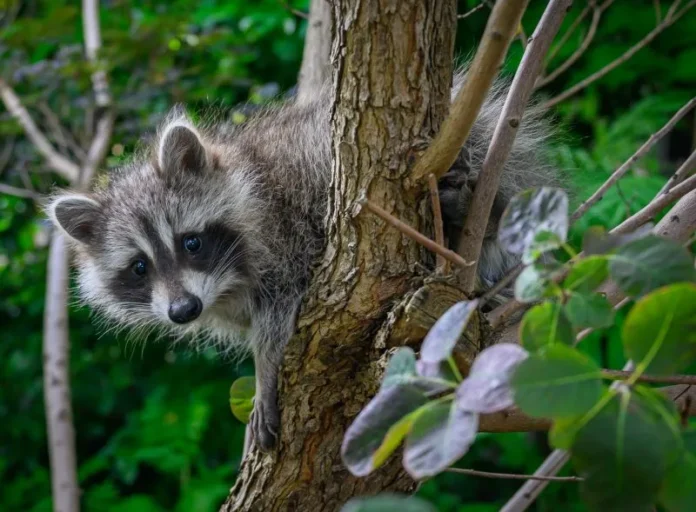They’re known as “trash pandas” and “backyard bandits,” but new research suggests raccoons may be inching their way toward becoming America’s next unconventional pet. A study published in the journal Frontiers in Zoology reveals that raccoons living in cities are physically evolving, showing features consistent with the early stages of domestication.
The key finding? Urban raccoons are developing shorter snouts compared to their rural cousins. This “reduction in snout length” is a classic sign of domestication syndrome—a set of anatomical changes, like floppy ears and curly tails, seen in animals like dogs as they evolved from wolves.
According to the researchers, this transformation starts with a familiar urban resource: our trash.
“Trash is really the kickstarter,” said study co-author Raffaela Lesch of the University of Arkansas at Little Rock. “Wherever humans go, there’s trash — and animals love our trash.”
To exploit this endless buffet, raccoons must strike a delicate balance. They need to be bold enough to navigate human environments, yet not so aggressive as to pose a threat. This creates intense natural selection pressure, favoring individuals with dampened “fight-or-flight” responses. The resulting physical changes, including their softer, “cuter” facial features, are a byproduct of this calmer disposition.
This process challenges the old belief that domestication is always initiated by humans. Instead, the study argues it can begin naturally when animals self-select to thrive near people. “Only animals with dampened flight responses would succeed best,” the authors wrote. “This makes the initial stages… a process of pure natural selection.”
Their successful adaptation is already visible in American culture. Some raccoons have become TikTok celebrities as pets, and one notably bold individual even interrupted a Major League Soccer match in Philadelphia last year. Occupying a unique space in American life—beloved in some neighborhoods, a pest in others—the raccoon’s journey from trash bin to potential pet may just be beginning.
By James Kisoo



















